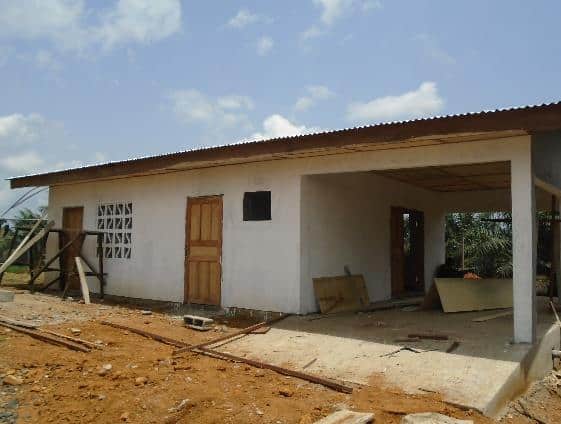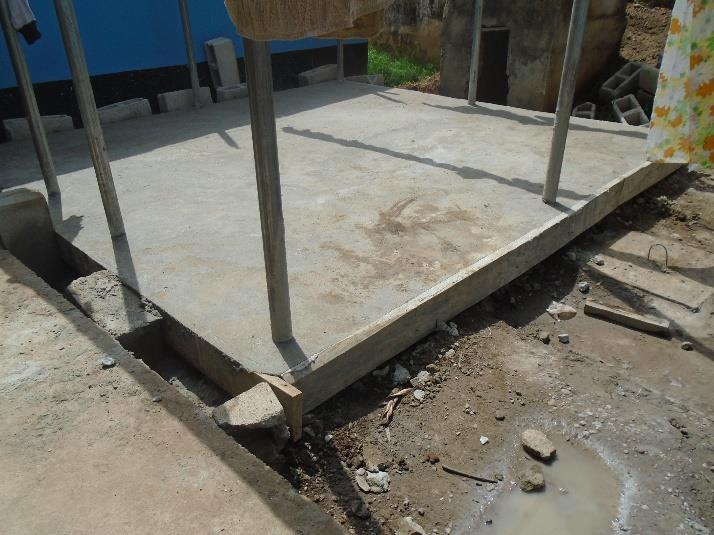Restoring Health Services in Liberia
January 14th, 2020 | story
One of USAID’s Maternal and Child Survival Program’s Restoration of Health Services (RHS) priorities is to improve infection prevention and control practices in Liberia. Better infection control measures are critical to improving the quality of the country’s maternal, newborn, and child health (MNCH) services. Since November 2016, MCSP is acting on this priority by constructing and rehabilitating water, waste, and triage systems at select facilities in Lofa, Grand Bassa, and Nimba counties.
MCSP is using a unique approach to planning and organizing partner involvement that is getting noticed by construction stakeholders. County health teams were brought together with the Ministry of Health (MOH) Infrastructure Unit and Environmental Safety and Occupational Health Unit. Then all parties were invited to participate jointly in the selection and assessment of facilities for improvement, and supervise ongoing construction projects to ensure that they are in line with MOH standards. Involving all partners from the beginning and bringing both stakeholders and contractors together has helped build confidence that everyone is doing their part.

This is the first time for the county health team to be fully involved in a construction process from procurement to implementation. I met with contractors in Monrovia before they came to Lofa, [and again] during the signing ceremony to which I was invited to witness. This is the first time it has happened, and the first [construction process] of its kind. – Blama Sirleaf, Environmental Safety and Occupational Health Technician, Lofa County
During the introduction and site selection and meeting in Lofa, Blama Sirleaf, the Environmental Safety and Occupational Health Technician said, “This is the first time for the county health team to be fully involved in a construction process from procurement to implementation.” He added, “I met with contractors in Monrovia before they came to Lofa, [and again] during the signing ceremony to which I was invited to witness. This is the first time it has happened, and the first [construction process] of its kind.”
The Grand Bassa County Health Team is satisfied with the quality of work done because we have been involved in all in the monitoring and supervision of the work. – Ehecht Menker Nuah, Environmental Safety and Occupational, Health Technician, Grand Bassa County

MCSP is working to ensure all stakeholders are consulted and included so that the county health teams are ready to take ownership of the agreed to renovations work. This was evident during a joint inspection with the USAID Global Health Ebola Team (GHET) engineer John Pasch in Grand Bassa. At the visit debrief, Mr. Ehecht Menker Nuah, the Environmental Safety and Occupational Health Technician in Grand Bassa told the USAID GHET engineer, “The Grand Bassa County Health Team is satisfied with the quality of work done because we have been involved in all in the monitoring and supervision of the work.” Mr. Pasch shared his satisfaction with the quality of the work and approach with the country health team representatives as well.
MCSP is working to complete renovations on 46 facilities in Lofa, Nimba, and Grand Bassa counties by the end of August 2017. These facility improvements will help ensure women and children receive better quality care.
Written by: John Tarawally, Infrastructure Advisor MCSP/Liberial Restoring Health Services
We strive to build lasting relationships to produce better health outcomes for all.